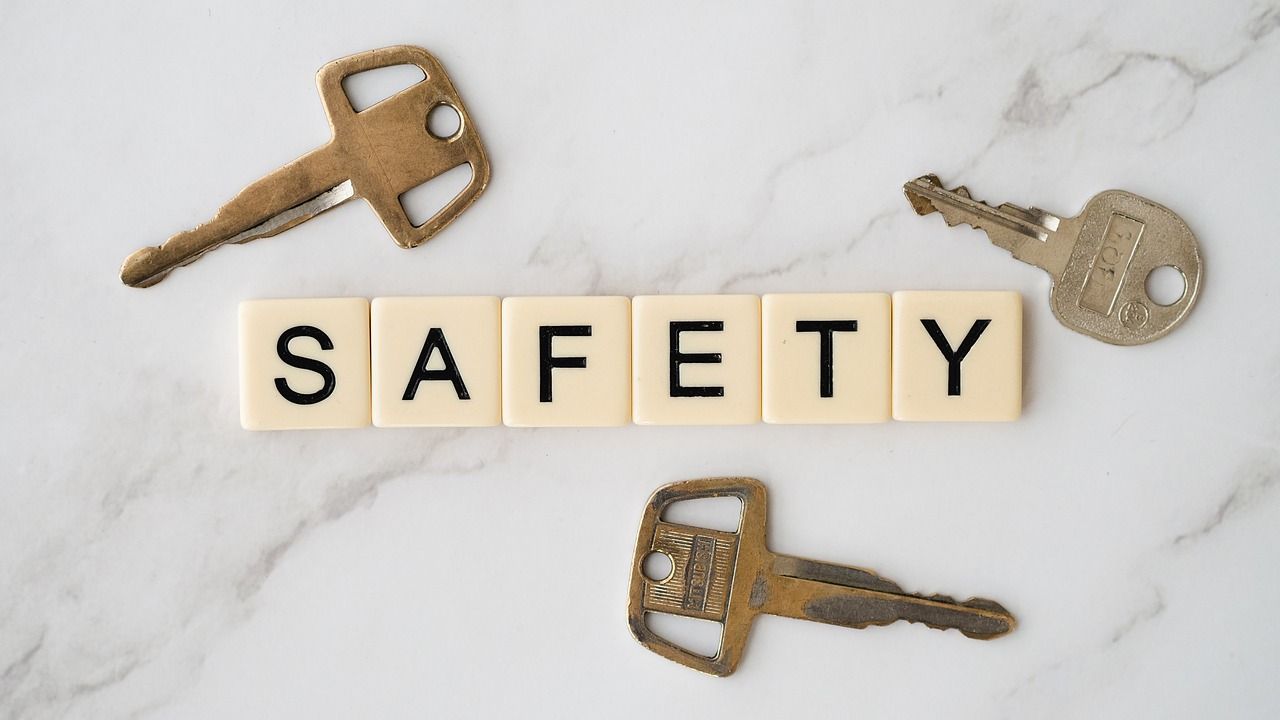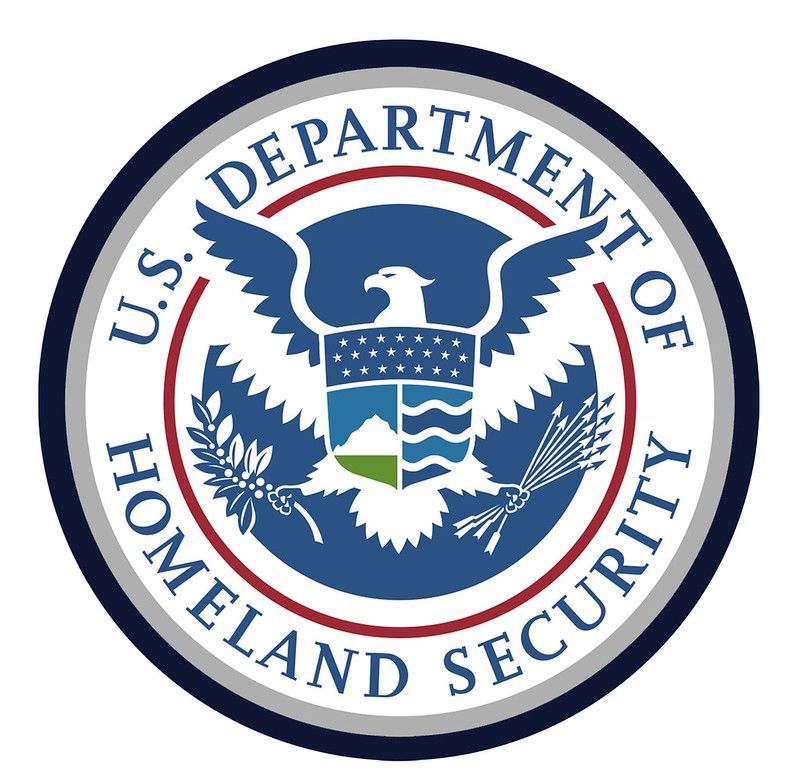The Department of Homeland Security AI Safety and Security Advisory Board
In a groundbreaking move, the Department of Homeland Security (DHS) today announced the establishment of the Artificial Intelligence (AI) Safety and Security Board. This Board represents a crucial step toward ensuring the responsible development and deployment of AI technologies within the nation's critical infrastructure.
The Board's primary objective is to advise the Secretary of Homeland Security, critical infrastructure stakeholders, private sector entities, and the general public on the safe and secure integration of AI across various sectors. By leveraging the expertise of industry leaders, policymakers, and civil rights advocates, the Board aims to develop comprehensive recommendations that will enable critical infrastructure providers, such as transportation services, pipeline operators, power grid managers, and internet service providers, to harness the full potential of AI while mitigating potential risks.
The creation of this Board comes in response to growing concerns highlighted in the DHS's 2024 threat assessment. The report warned of the "potential for AI-assisted tools to enable larger-scale, faster, more efficient, and more evasive cyber attacks against critical infrastructure targets like pipelines, railways, and other vital US systems."
Moreover, the assessment cautioned that nations like China are actively developing "AI technologies that could undermine U.S. cyber defenses, including generative AI programs that support malicious activities such as malware attacks."
The Pioneering Members of the Artificial Intelligence Safety Board
To address these challenges head-on, President Biden has directed Secretary Alejandro N. Mayorkas to assemble a diverse and accomplished group of 22 experts from various sectors, including software and hardware companies, critical infrastructure operators, public officials, civil rights organizations, and academia.

"El impresionante alcance del futuro imperio de la IA de Sam Altman" by pacogilgon is licensed under CC BY-NC-SA 2.0.
Among the influential members are:
- Sam Altman, CEO of OpenAI
- Dario Amodei, CEO and Co-Founder of Anthropic
- Ed Bastian, CEO of Delta Air Lines
- Rumman Chowdhury, Ph.D., CEO of Humane Intelligence
- Alexandra Reeve Givens, President and CEO of the Center for Democracy and Technology
- Jensen Huang, President and CEO of NVIDIA
- Arvind Krishna, Chairman and CEO of IBM
- Fei-Fei Li, Ph.D., Co-Director of the Stanford Human-Centered AI Institute
- Satya Nadella, Chairman and CEO of Microsoft
- Sundar Pichai, CEO of Alphabet
- Arati Prabhakar, Ph.D., Assistant to the President for Science and Technology
- Chuck Robbins, Chair and CEO of Cisco, and Chair of the Business Roundtable
- Adam Selipsky, CEO of Amazon Web Services
- Dr. Lisa Su, Chair and CEO of Advanced Micro Devices (AMD)
- Nicol Turner Lee, Ph.D., Senior Fellow and Director of the Center for Technology Innovation at Brookings Institution
This diverse array of leaders represents a cross-section of expertise, ensuring that the Board's recommendations are informed by a multidisciplinary perspective, encompassing technological advancements, business operations, public policy, and civil rights considerations.
The Board's Purpose and Objectives
As the federal agency responsible for the overall security and resilience of the nation's critical infrastructure, DHS plays a pivotal role in safeguarding the essential services that hundreds of millions of Americans rely upon daily. These services encompass sixteen sectors, ranging from defense and energy to agriculture, transportation, and internet technology.
Through the AI Safety and Security Board, DHS aims to ensure the safe and responsible deployment of AI technologies across these vital sectors in the years to come. The Board's primary objectives are twofold:
1. Provide the Secretary of Homeland Security and the critical infrastructure community with actionable recommendations to facilitate the safe adoption of AI technology in essential services that Americans depend on every day.
2. Create a forum for DHS, critical infrastructure stakeholders, and AI leaders to share information on the security risks presented by AI and develop strategies to mitigate these risks.
"Artificial Intelligence is a transformative technology that can advance our national interests in unprecedented ways. At the same time, it presents real risks – risks that we can mitigate by adopting best practices and taking other studied concrete actions," said Secretary Mayorkas. "I am grateful that such accomplished leaders are dedicating their time and expertise to the Board to help ensure our nation's critical infrastructure – the vital services upon which Americans rely every day – effectively guards against the risks and realizes the enormous potential of this transformative technology."
By fostering collaboration between government agencies, private sector entities, and academic institutions, the Board aims to develop comprehensive guidelines and frameworks that strike a balance between harnessing the innovative potential of AI and safeguarding critical systems from potential threats.
The Board's inaugural meeting is scheduled for early May, with subsequent meetings planned on a quarterly basis. In its initial phase, the Board will focus on two key priorities:
1. Providing the Secretary and the critical infrastructure community with actionable recommendations to ensure the safe adoption of AI technology in essential services.

Photo from: Pixabay
2. Creating a forum for information sharing on AI-related security risks and mitigation strategies.
As AI technologies continue to evolve and permeate various aspects of our lives, the establishment of the DHS AI Safety and Security Board represents a proactive step toward anticipating and addressing potential challenges. By bringing together diverse perspectives and leveraging collective expertise, this Board has the potential to shape a future where the transformative power of AI is harnessed responsibly, ensuring the continued safety and resilience of our nation's critical infrastructure.
Potential Impact and Board Member's Perspectives
The establishment of the DHS AI Safety and Security Board is poised to have a significant impact on the AI landscape, particularly in the realm of critical infrastructure and national security. By bringing together leading experts from various fields, this Board has the potential to shape the responsible development and deployment of AI technologies, ensuring that innovation and safety go hand in hand.
Several members of the Board have shared their thoughts on the importance of this initiative and its potential implications for the future of AI:

"Sam Altman CropEdit James Tamim" by TechCrunch is licensed under CC BY 2.0.
Sam Altman, CEO of OpenAI, expressed his enthusiasm for the Board's mission, stating, "AI is one of the most transformative technologies of our time, with the power to solve some of humanity's greatest challenges. However, we must also be vigilant in addressing the risks and potential unintended consequences associated with its development and deployment. The DHS AI Safety and Security Board represents a crucial step in ensuring that AI is developed and utilized responsibly and ethically, particularly in critical infrastructure sectors."
Fei-Fei Li, Ph.D., Co-Director of the Stanford Human-Centered AI Institute, emphasized the importance of a multidisciplinary approach, saying, "The impact of AI on our society is multifaceted, and addressing its challenges requires a diverse range of perspectives. By bringing together experts from fields such as technology, ethics, civil rights, and public policy, the Board has the opportunity to develop holistic solutions that prioritize the well-being of individuals and communities while fostering innovation."
Nicol Turner Lee, Ph.D., Senior Fellow and Director of the Center for Technology Innovation at the Brookings Institution, highlighted the board's potential to bridge the gap between technological advancements and societal concerns. "AI has the power to revolutionize various industries and improve our daily lives, but it also raises important questions about privacy, fairness, and accountability," she stated. "The Board's work will be instrumental in ensuring that AI systems are developed and deployed in a manner that upholds our democratic values and protects the rights of all citizens."
Arati Prabhakar, Ph.D., Assistant to the President for Science and Technology and Director of the White House Office of Science and Technology Policy, underscored the importance of proactive measures in addressing AI risks. "As we continue to push the boundaries of what is possible with AI, we must anticipate and mitigate potential threats to our critical infrastructure," she said. "The Board's efforts to develop best practices and actionable recommendations will play a vital role in safeguarding the essential services that our nation relies upon."
Shantanu Narayen, Chair & CEO, Adobe: "Adobe is honored to be a part of the Artificial Intelligence Safety and Security Board to share learnings and recommendations with Secretary Mayorkas and key stakeholders across the public and private sectors. This Board holds enormous potential to advance AI technology, establishing guidelines that will help AI enhance and secure our nation's critical infrastructure while mitigating any risks it could pose."
Dr. Lisa Su, Chair and CEO, of Advanced Micro Devices: "The widespread use of AI has the potential to improve every aspect of our daily lives. We must work across the public and private sectors to adopt a collaborative and responsible approach that will ensure we harness the incredible power of AI for good. I am honored to work alongside such an esteemed group of colleagues on this important issue."
Adam Selipsky, CEO, of Amazon Web Services: "As one of the world's leading developers and deployers of AI tools and services, AWS supports fostering the safe, secure, and responsible development of AI technology. We appreciate the opportunity to serve as an inaugural member of the Artificial Intelligence Safety and Security Board, and we are committed to continued collaboration with policymakers, industry, researchers, critical infrastructure providers, and the AI community to advance the responsible and secure use of AI."
The diverse range of perspectives represented on the Board, combined with the collective expertise of its members, positions it as a powerful force in shaping the future of AI development and implementation. By fostering collaboration and information sharing, the Board has the potential to establish guidelines and frameworks that strike a delicate balance between innovation and responsibility, ensuring that the transformative power of AI is harnessed in a way that benefits society while protecting against potential risks.
Here is the additional section with quotes from Shantanu Narayen, Dr. Lisa Su, and Adam Selipsky, followed by a conclusion:
The establishment of the DHS AI Safety and Security Board marks a significant milestone in the responsible development and deployment of AI technologies, particularly within the realm of critical infrastructure. By bringing together a diverse group of experts from various sectors, this initiative represents a collective effort to harness the transformative power of AI while mitigating potential risks and addressing societal concerns.
As the Board commences its work, it will undoubtedly face numerous challenges, from navigating complex technical and ethical considerations to fostering collaboration among stakeholders with varying interests. However, the commitment and expertise of its members, coupled with the support of the government and industry leaders, provide a strong foundation for achieving meaningful progress.
The Board's impact will extend beyond the boundaries of critical infrastructure, catalyzing broader discussions and collaborations surrounding the responsible use of AI. By establishing guidelines, best practices, and frameworks, the Board has the potential to shape the future of AI development and implementation across various sectors, ensuring that innovation and ethical considerations go hand in hand.
As the world continues to grapple with the profound implications of AI, the DHS AI Safety and Security Board represents a beacon of hope, signaling a collective determination to harness the transformative power of this technology while safeguarding the interests and well-being of individuals, communities, and nations.








